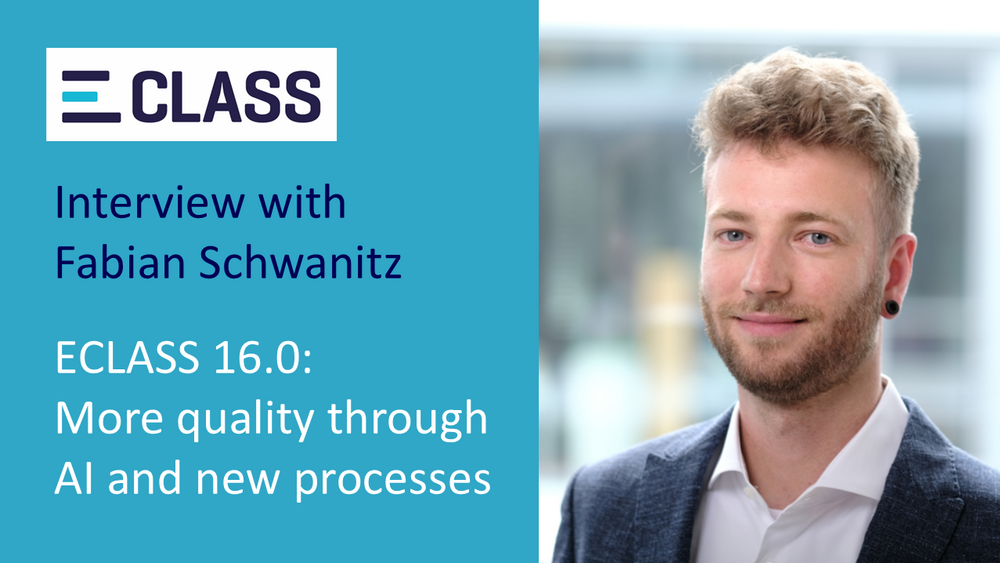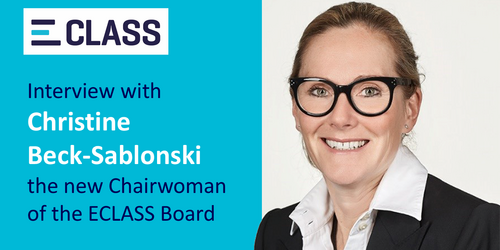Fabian, the phase for submitting change requests (CRs) for the alpha phase has already been completed. Is there a lot of new content for ECLASS 16.0 and in which segments are the most changes to be expected?
Around 22,600 CRs were submitted for the alpha release of ECLASS 16.0 this year. In the first step, we have already checked these for conformity with the ECLASS Business Rules. In the next step, these will now be checked by the Expert Groups for correctness of content.
Most of the new classes will be added to segment 23 in Release 16.0. Although fewer new classes were submitted in this alpha phase than in previous years, this is mainly due to the fact that a lot of existing content was expanded and further improved in terms of quality as part of the change requests.
What role does automation or AI play in the processing of submitted change requests on the Content Development Platform (CDP)?
Automation plays a crucial role in technically checking the high number of change requests that are submitted each year. For example, CRs are already checked for compliance with the ECLASS Business Rules using automatic check routines when they are entered into the software. Error-free CRs are accepted by the system. Once the CRs have been officially submitted, they are automatically translated into up to 30 languages via DEEPL. Of course, the release is also generated fully automatically.
On the subject of AI: the first use cases have already been identified in which AI can be used, for example to expand existing content. With the alpha release, 5,500 classes will be supplemented with definitions that were generated using ChatGPT. To signal to users that this is an AI addition, this is noted in the “Source of Definition” data field.
Procedures are also currently being tested to check existing content using AI. Possible applications include the identification of redundancies and the quality assurance of submitted CRs.
Can you give us an outlook on what structural or procedural innovations are planned for future versions of the CDP software
We are currently working on a new CR workflow to be implemented in the CDP software. The aim of the new workflow is to further automate CR checks and optimize responsibilities in change management. For example, submitters are to be automatically assigned work packages for review in future. Incorrect CRs are to be automatically sent back to the submitter, including an adequate error description. This optimized workflow will contribute to a significant increase in the quality of the submitted content.
Are there any specific software innovations that will be available soon
Yes, a new version of the CR import sheet will be published at the end of July 2025. The import sheet is intended to support users when entering change requests, especially when a large number of change requests are submitted. The most important enhancements of the new version are that Advanced and Asset Application Classes can now also be created and extended with properties. In addition, the submitter can now decide for themselves whether an AC with standard aspects should be generated automatically when creating a Classification Class. With the new import sheet, it is also possible to submit change requests in all ECLASS languages. The submitter's Translation Quality Level (TQL) is automatically entered in the CR. I am very pleased that we will soon be able to offer these enhancements and thus significantly improve the submission process once again.


